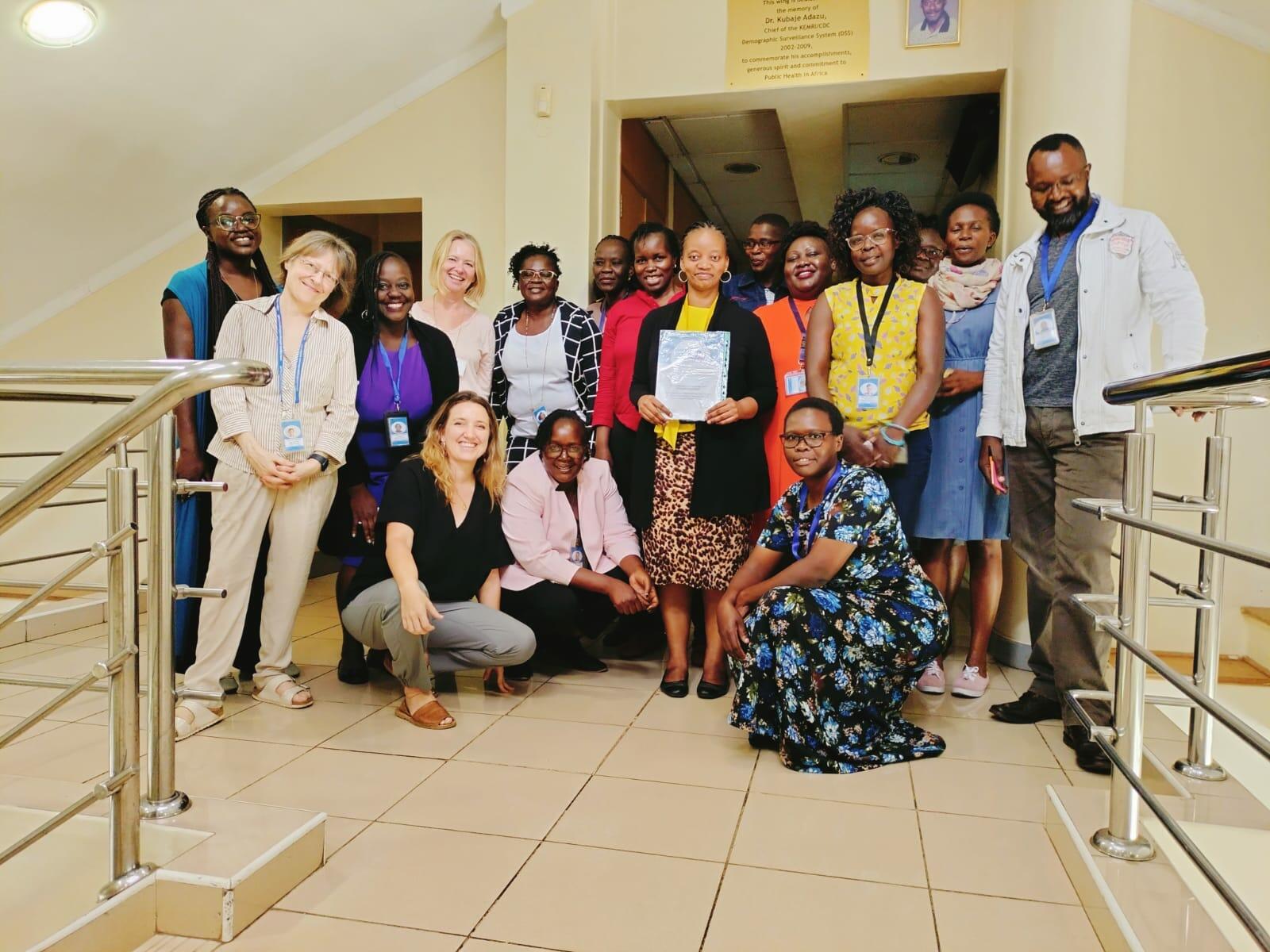
Menstrual cups may result in fewer infections and improve vaginal health, a new trial led by Liverpool School of Tropical Medicine shows.
Researchers from LSTM, in collaboration with researchers in Kenya and the USA, have been investigating options for girls and young women in low-and-middle-income countries to manage menstruation with comfort and dignity and to improve health outcomes.
Led by Penelope Phillips-Howard, Professor of Public Health Epidemiology at LSTM, the randomised trial, Cups or Cash for Girls (CCG) is the first to assess the impact of the menstrual cup on girls’ incidence of HSV-2.
Two new papers from the CCG trial provide evidence that the menstrual cup may provide beneficial results to menstruators’ reproductive health and is an acceptable and long-lasting solution to manage menses.
The findings of the trial, recently published in eClinicalMedicine, showed that girls provided with cups had a 33% reduction in HSV-2 compared to the control group. HSV-2, the virus that causes genital herpes, can triple an individual’s risk of becoming infected with HIV.
Dr Garazi Zulaika, Post-Doctoral Research Associate at LSTM and lead author on the paper said: “We were interested to know whether a long-lasting, sustainable, and hygienic menstrual solution would be used by girls and be effective in improving their schooling and sexual and reproductive health.
"Our results show that menstrual cups were well-accepted by girls’ as well as protective against infections, highlighting how they can be a great option for menstrual hygiene management while also having significant health impacts."
The study involved 4,137 Kenyan schoolgirls between 16-18 years across 96 secondary school in western Kenya. It was funded by the UK’s Department of Health and Social Care, Foreign, Commonwealth & Development Office, Medical Research Council, and Wellcome. Schools were allocated to four treatment groups: menstrual cup, conditional cash transfer, combination of cup and cash transfer, and usual menstrual practice (control). Girls were followed for three years or until they completed secondary school.
A sub-study, funded by the National Institutes for Health, and led by Prof Supriya Mehta, Professor of Infectious Disease Medicine at Rush University, and Adjunct Professor of Epidemiology at the University of Illinois Chicago, followed 436 girls and assessed whether menstrual cups reduced rates of bacterial vaginosis or changed the vaginal microbiome. A healthy vaginal microbiome is essential for long term vaginal health, reduces risks for infections, and is associated with improved maternal and newborn outcomes.
Recently published in PLoS Medicine, this sub-study found that girls given menstrual cups had a 24% reduction in bacterial vaginosis compared with controls. Additionally, there was a 37% relative increase in Lactobacillus crispatus, indicating cups could improve or maintain a healthy vaginal microbiome.
Elizabeth Nyothach, trial manager at the Kenya Medical Research Institute, who partnered with LSTM on the study, said: “Menstrual cups can be used for up to ten years, offer long term health benefits, reduce waste, and provide financial savings as there is no longer a need for menstruators to buy single use pads and tampons every month.”